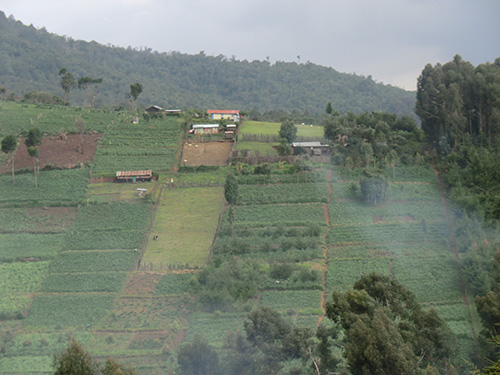Examples & Outputs
of activities and topics covered under C4a
Fertilizer Policy FSP/C4a team has finished a major study on input subsidy programs and the need for a more holistic farm productivity growth strategy that focuses on the need for soil fertility improvements, sustainable land management, and bi-directional extension learning programs to enable farmers to use fertilizer more efficiently and profitably. Based on this new study, the team has undertaken a number of policy engagement activities in Africa with national governments (e.g., Kenya, Malawi, Zambia) and at regional fora such as the AGRF which assembled over 1,000 African policymakers, government representatives and members of development organizations.
FSP/C4a team has finished a major study on input subsidy programs and the need for a more holistic farm productivity growth strategy that focuses on the need for soil fertility improvements, sustainable land management, and bi-directional extension learning programs to enable farmers to use fertilizer more efficiently and profitably. Based on this new study, the team has undertaken a number of policy engagement activities in Africa with national governments (e.g., Kenya, Malawi, Zambia) and at regional fora such as the AGRF which assembled over 1,000 African policymakers, government representatives and members of development organizations.
Holistic Sustainable Intensification Strategy for Smallholder Farmers in Increasingly Densely Populated Areas of Africa
FSP has finished a study on strategies for promoting sustainable agricultural intensification and productivity growth. Based on this new study, we have undertaken a number of policy engagement activities in 2016 in Africa, internationally, and at regional fora such as the AGRF.
Land Dynamics and Land Policy
FSP/C4a team has developed a strong global analytical base for formulating land allocation and land tenure policies in Africa. Research and policy engagement in this area has:
- Conducted multi-country studies on the relationship between farm scale and farm productivity involving a strong team of local and international researchers in Tanzania, Kenya, Ghana, and Zambia.
- Conducted numerous policy engagement and outreach activities in Africa, with national governments, policy conferences, government retreats, and seminars.
- Formalized partnership with the African Union-Land Policy Institute to work collaboratively on monitoring and evaluation of land governance policies in selected African countries and areas of capacity building following the NELGA initiative.
- Generated empirical evidences from several African countries that show:
- the rise of medium-scale farms, the causes and consequences of this development, and policy options that African governments may want to consider (see for example, the study by Jayne et al. and featured story.)
- the status quo (in terms of the customary tenure arrangements) is no longer an option as social, economic and climatic transformations/dynamics erode the tenure security the traditional system used to guarantee. Differential analysis shows that the adverse tenure security effect of such transformations/dynamics is critical to female, migrant and younger member of a community. (See the study on customary tenure in Mozambique).
- Created awareness about the new reforms, regulations, process and procedures concerning land governance that dictate tenure security and the consequential intra-household power relations and welfare outcomes of interventions and initiatives to protect land governance (see the example of the study in Ghana and Ethiopia). New programs in Mozambique, Nigeria and Ethiopia now consider public sensitization as integral part of their land administration interventions
Mechanization in Agricultural Transformation: South‐South Learning and Knowledge Exchange:
This activity is designed to offer African stakeholders and the governments the insights about the economic conditions for promoting growths in the demand for mechanization, and how proper regulations and policies may help such growth, and the role of the private sector to meet such demand. To this effects, study tours have been conducted for African government officials from Ghana, Nigeria, Kenya and Ethiopia to visit Bangladesh and learn from its experience as part of the South-South knowledge exchange (see Policy Research Briefs 11 and 12) summarizing the perspectives and observations by African visitors.
Exploring the Relationships between Agricultural Transformation and Youth Employment in Africa’s Economic Transformation. Research undertaken under this topic is designed to create a better understanding of how Africa’s economies and employment patterns are changing, and to meet the demand for better evidence base to project future trends and develop policy options. Several major publications in Foreign Affairs, The Conversation, AgYEES Youth Report, the 2016 AGRA Status Report, and Agricultural Economics highlight why it is critically important for African governments to make agriculture more attractive to Africa’s rural youth. Possible strategies for African governments and development agencies are proposed to achieve this objective.
Photo: Agriculture intensification in Africa (credit: Thomas Jayne)


